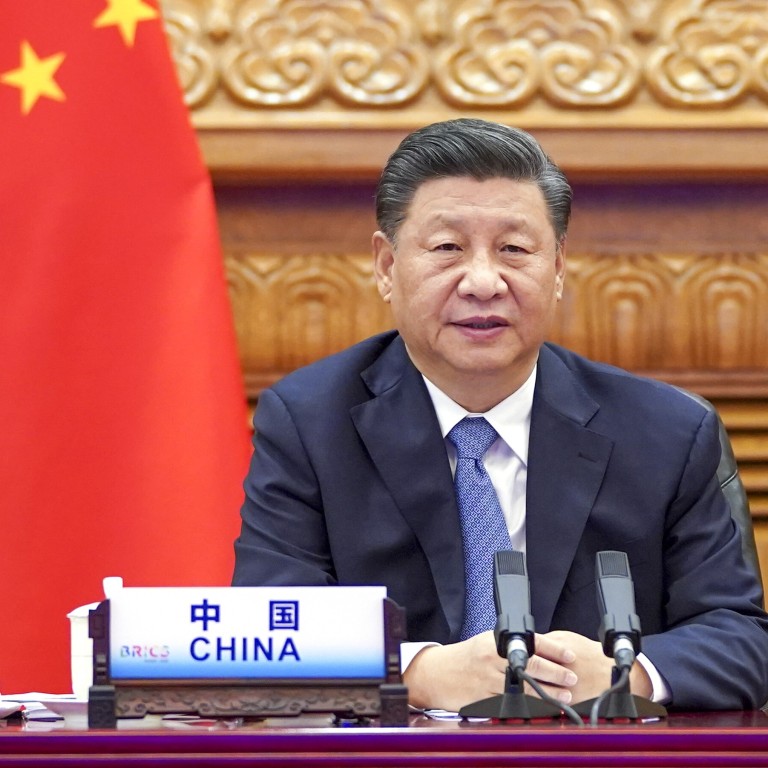
Xi Jinping tells BRICS leaders ‘we’re all in the same boat’ as he takes veiled swipe at US
- Chinese president calls on emerging economies to uphold multilateralism and ‘oppose unilateral sanctions and long-arm jurisdiction’
- He also says the five nations should work together to fight the pandemic and to implement the Paris climate agreement
“When the wind is strong and the tides are high, we must be even more focused on our direction,” he said on Tuesday via video link.

“We should resolve differences through consultation and negotiation, oppose interference in internal affairs, oppose unilateral sanctions and long-arm jurisdiction, and jointly create a peaceful and stable development environment,” the Chinese leader said.
He did not mention the United States, but Beijing has previously hit out at Washington over its sanctions against Chinese officials and institutions deemed to have caused harm in Hong Kong and Xinjiang.
The president’s remarks came after special adviser for climate change affairs Xie Zhenhua on Monday told the virtual European Business Summit there was huge potential for China and Europe to cooperate on international climate governance and low-carbon development. He also said Beijing hoped Washington would return to the Paris accord.
“There have been many setbacks and problems in the 12 years of climate talks that I’ve been participated in, but the European Union and countries like France and Germany have been active in pushing forward and they have shown good leadership,” said Xie, who is also dean of the Institute of Climate Change and Sustainable Development at Tsinghua University.

03:05
China vows carbon neutrality by 2060 during one-day UN biodiversity summit
“The situation is different compared to 10 years ago. We don’t know if there will be a common solution to the problems the five countries are facing,” said Pang Zhongying, an international relations professor at Ocean University in Qingdao.
“For instance, BRICS countries don’t have much in the way of common values or goals on climate change,” he said.
In his election campaign in 2018, Brazilian President Jair Bolsonaro pledged to pull Brazil out of the Paris climate accord, but later said he would keep the country in the agreement “for now”.
India, meanwhile, said at the Madrid climate talks last year that it would insist on the principle of “equity and common but differentiated responsibilities”. It also urged developed countries to take the lead in undertaking ambitious actions and “scale up their financial support”.
Climate change is a key area where China wants to work with other countries, including in the BRICS grouping, according to Pang.
“The world is in the midst of a complicated crisis and China wants to play a bigger role [in solving problems],” he said. “But it’s a question of how big a role it can realistically play.”

